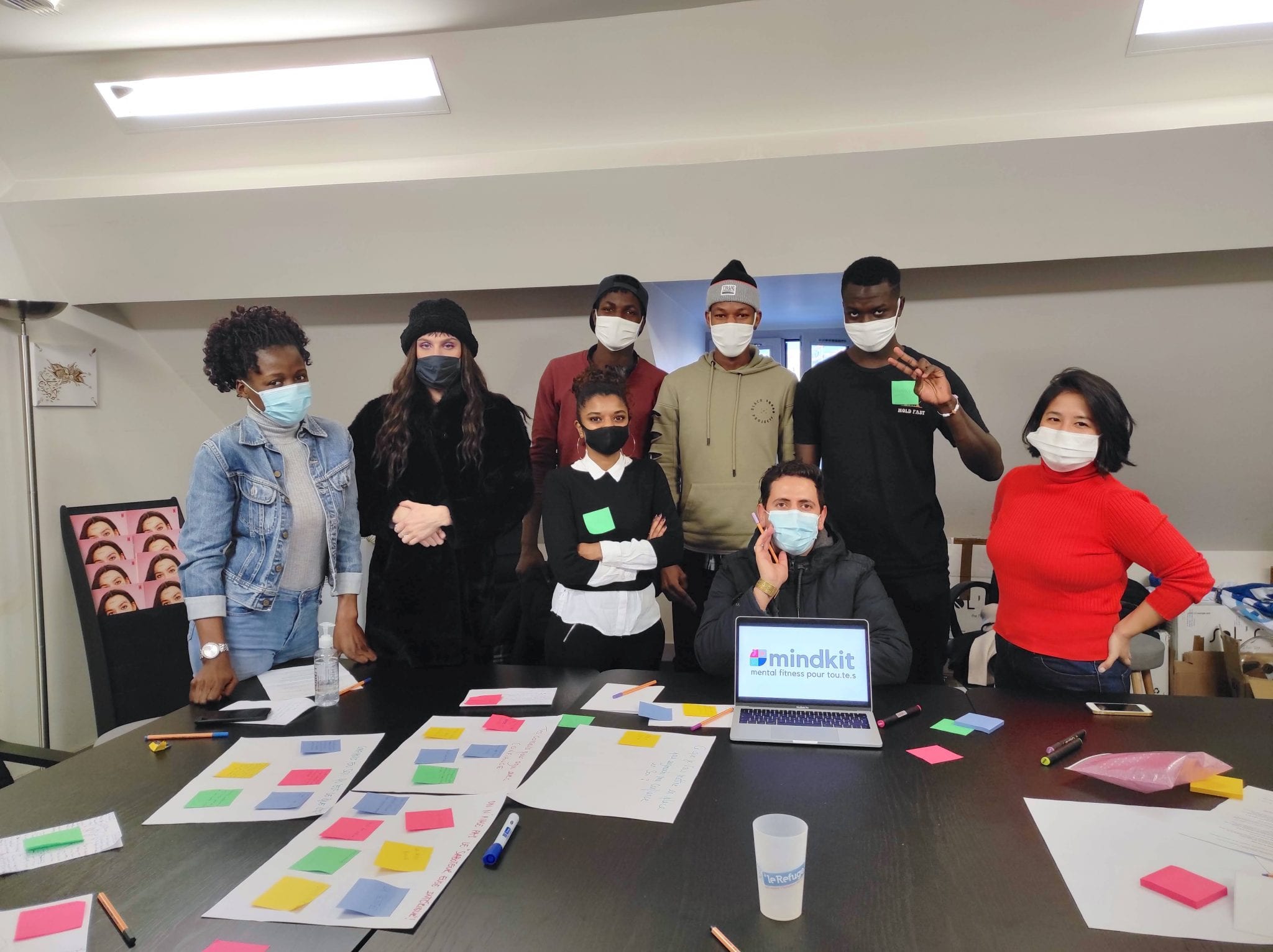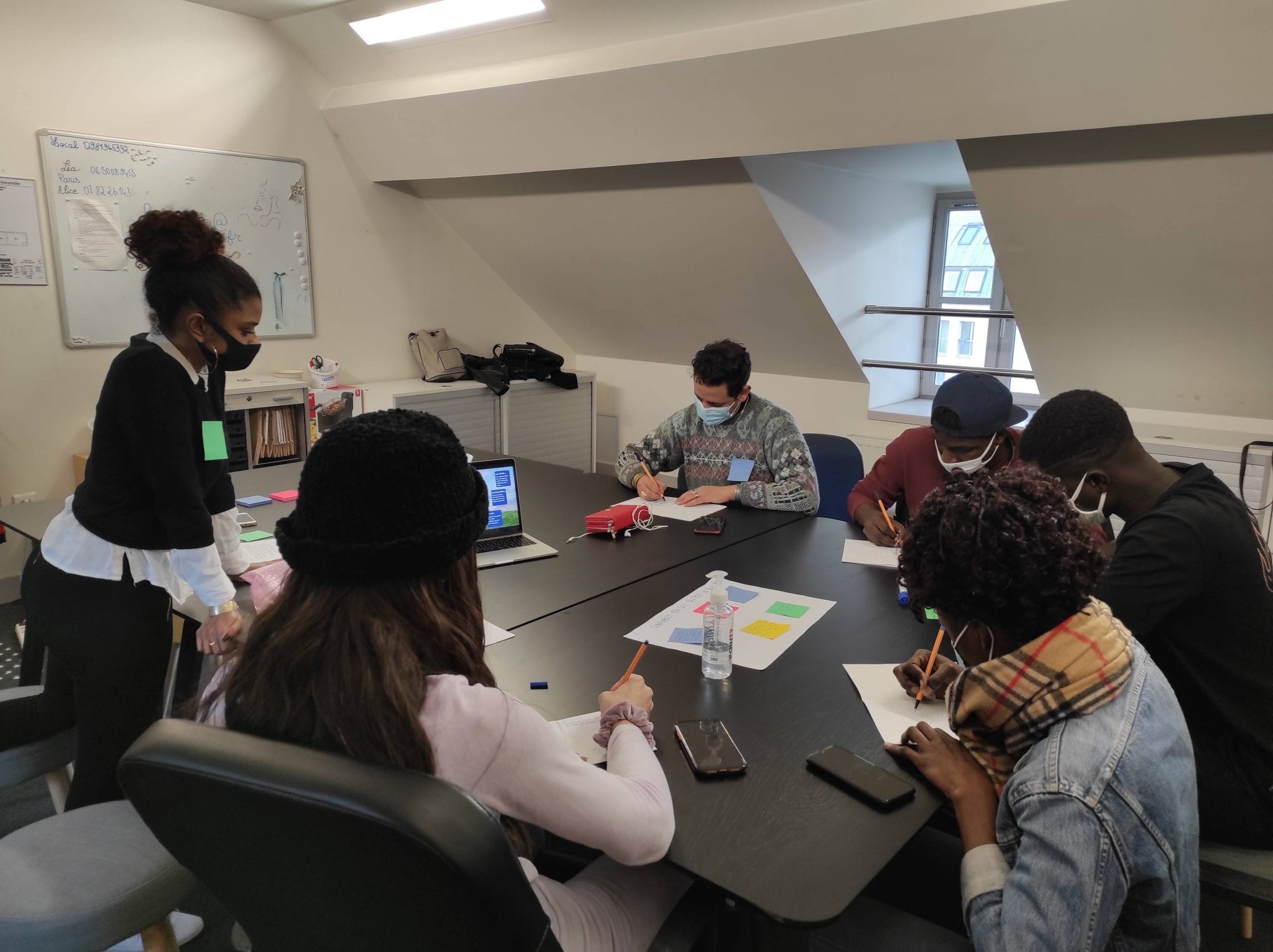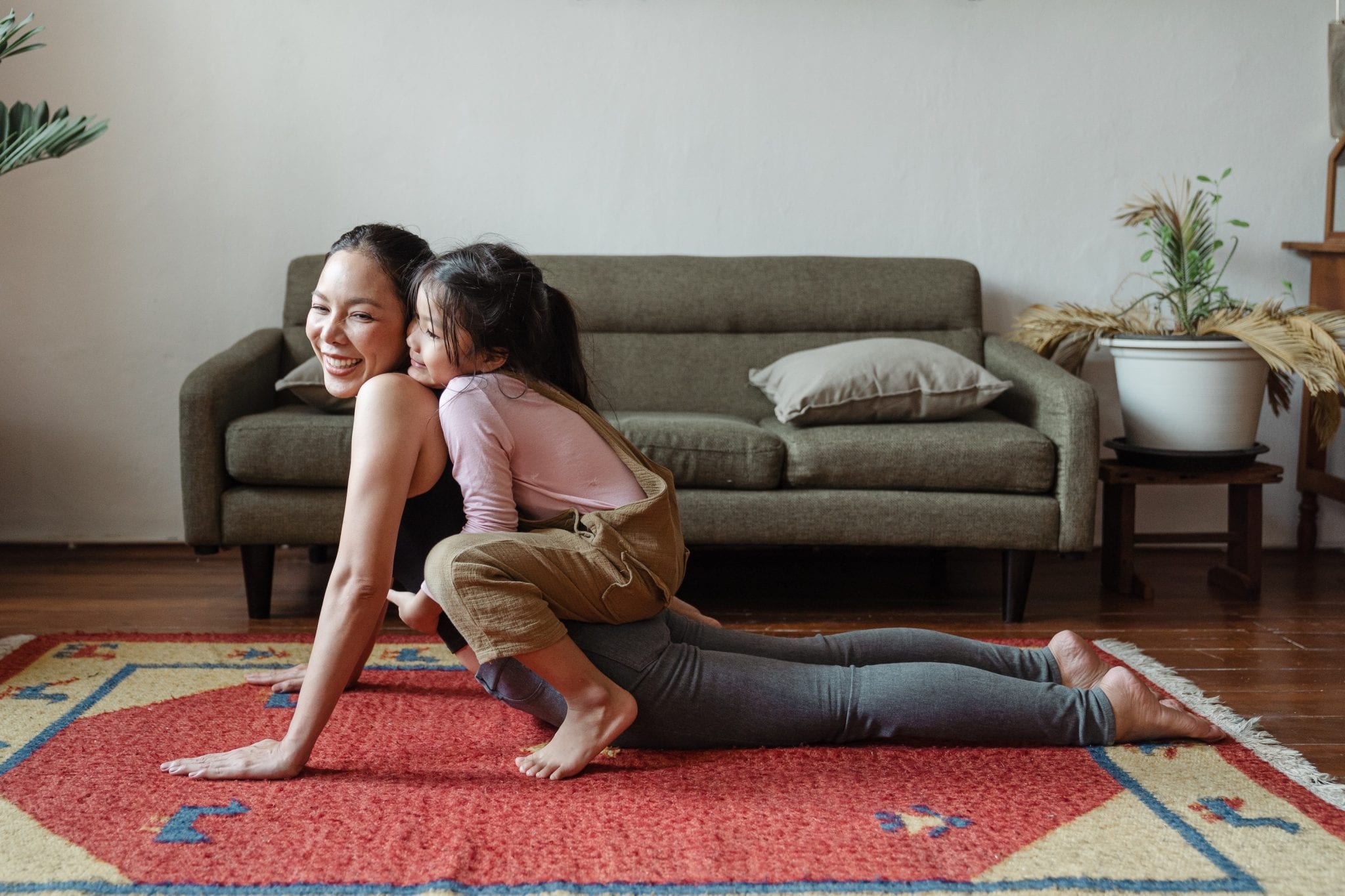
Nobody needs any convincing that we live through challenging times that weigh heavy on our mental health. While many of us look for coping mechanisms to deal with looming lockdowns or COVID count anxiety, the crisis is much more severe for the most vulnerable community members.
I spoke to Mindkit, a recent Stardust grant recipient, to find out how they help people find a self-care balance.
Mindkit is a nonprofit group boosting mental health fitness through accessible workshops and activities. Found outside of Paris, they provide a space for women, young people in difficult situations, and people in the LGBTQIA+ community to take part in stress-management activities.
Stardust Startups began the grant-awarding process for Katherine Terao, Mindkit founder, in the Spring of 2020. After speaking with her, though, it’s clear she is just getting started.
Only the healed can be healers
Katherine’s charisma is unmistakable to anyone who asks her about Mindkit. The project is successful and a welcoming space because it rests on the shoulders of people who went through a healing process of their own. Healed people are the best healers because they do not derive or expect to be healed through healing others. Instead, their own individual self-care practices find a balance that guards against negativity and is strong enough to hold space for others’ needs.
In Katherine’s own words, though, the project has become the baby of everyone involved in the project and is no longer just “her thing.” Few projects can be successful alone, so Katherine assembled a team from her personal connections – people she trusted and knew would commit to a selfless cause.
Interest in Mindkit’s stress-relief, self-care activities is growing between COVID lockdowns and case count anxieties. In-person studio space and resources are more limited. She and her team gave me some valuable tips on setting a self-care routine at-home until physical activities and therapies are more available.

1) Internal communication is critical.
Look no further than at the newfound popularity of yoga and mindfulness to find that our peers influence our self-care practices. But while it helps to learn what helps other people cope, we can’t expect that what works for our friends will work for us.
Mindkit hopes that communication can be a gateway to self-care practices. Not everyone is in the right place to jump right into a self-care routine. Plus, the spiritual associations with yoga and meditation can turn away more secular-minded people.
Setting a rhythm around a self-care routine is only as effective as the internal dialogue we have within ourselves. Even the most well-intentioned activities can have muted results if we do not begin to reframe our relationships with ourselves through our thoughts.
2) Meditation and yoga are self-care strategies, not silver bullets.
The minute I begin to think of meditation or yoga as something I “should do” is when I see they are becoming stale practices. Don’t get me wrong – sometimes, it helps push through one’s hesitations and find a mindful presence, anyway. The benefits of meditation can be found in other ways. For me, playing chess, taking long walks, and reading a novel can help relieve anxiety or set a new rhythm.
Bayane, one of the first people involved in Mindkit, suggests that we find a unique care practice that is an extension of our uniqueness. Merely setting up resolutions for the day and positive affirmations can pivot a pattern of negative self-talk. She recommends that setting sound intentions begins by “looking inside for a minute or two and thinking ‘What do I want to do today?’”
“By shifting our perspectives, we can help ourselves better. You don’t need meditation or yoga to consider yourself on a self-care journey! They are tools, but there are many other tools.”
The point in mindfulness practices is to find an inner sense that your thoughts are just your thoughts and do not represent any aspect of who you are. It is a tricky but straightforward idea that can only be found through experience but one that restores balance and a sense of your intrinsic power.
3) Begin with a beginner’s mind.
Even the best-intended habits can begin to have a null effect on mental health. Bayane describes well-being as a journey more than a state of mind and must be continuously calibrated and tuned to find what works. She recommends that even people with ongoing self-care practices should “keep a beginner’s mind and reconnect to our needs by asking ourselves ‘Is this benefiting me?’”
By rethinking our everyday tasks, we may find new life in activities we once considered mundane. “Maybe someone wants to get started with physical exercise but feels like it’s too much a leap for them, but have they considered their daily walks could be part of a fitness routine?”
Journaling can be a way to scan the body and the mind. Cooking can turn into dancing with the right music. Commitment to any practice seems to be the best way to show your body and mind that you are there to heal and listen.

Mindkit is shattering the stigma around seeking mental health treatment.
While France and Europe are far ahead of the United States and other nations in addressing mental health challenges, they are far from perfect. Even for those who have the strength to seek treatment, it is another matter to find an affordable therapy option. France’s public welfare scheme does not provide any help for therapy or counseling patients and only offers free psychiatric appointments. Not everyone needs or wants a pharmaceutical remedy for their mental health challenges, especially if their environment is the primary negative cause.
Mindkit meets some of the French demand for therapy and counseling sessions by providing free support for the most vulnerable people. Dusline is a psychologist who works with Mindkit to create workshops and stress management activities. She says that their activities try to “boost happiness hormones amongst our public… and help dedramatize the act of making an appointment with a mental health professional if needed.”
I like happiness hormones as much as the next person, but lockdown lethargy sometimes saps them without noticing. During such a period of isolation and fragmentation, dialogue and sharing vulnerabilities may be the best ways to help people feel less isolated. France’s and the global mental health stigma must be a part of why people turn more to prescription antidepressants rather than therapy during the COVID crisis.
By building a community of support for women in abusive homes and LGBTIQA+ people, Mindkit is fracturing the stigma around seeking mental support and helping communities heal by caring for the most vulnerable. We can all benefit from evaluating how our self-care practices contribute to our mental health. Only then can we be positive contributors to our communities and nodes of strength to restore a community mental health network.
“While benefiting ourselves instantly, getting on a self-care journey helps those around us.
‘I show up for myself, so I can be a better person, a better friend, a better sister or brother, a better partner, a better colleague…’
By getting further and further away from the auto-pilot mode we often find ourselves in this society, we open up to be kinder to those around us and ourselves.”
– Bayane, Mindkit

